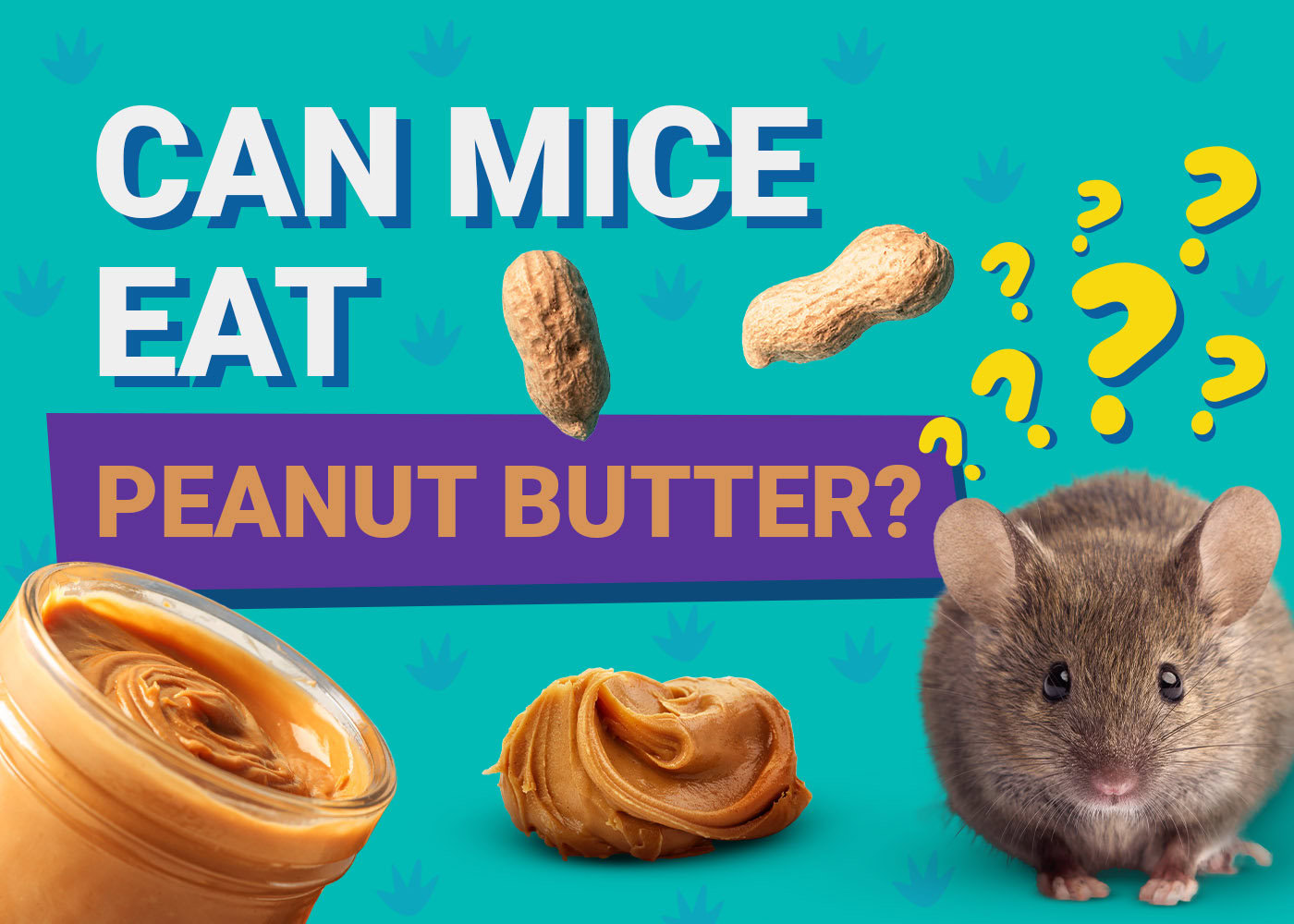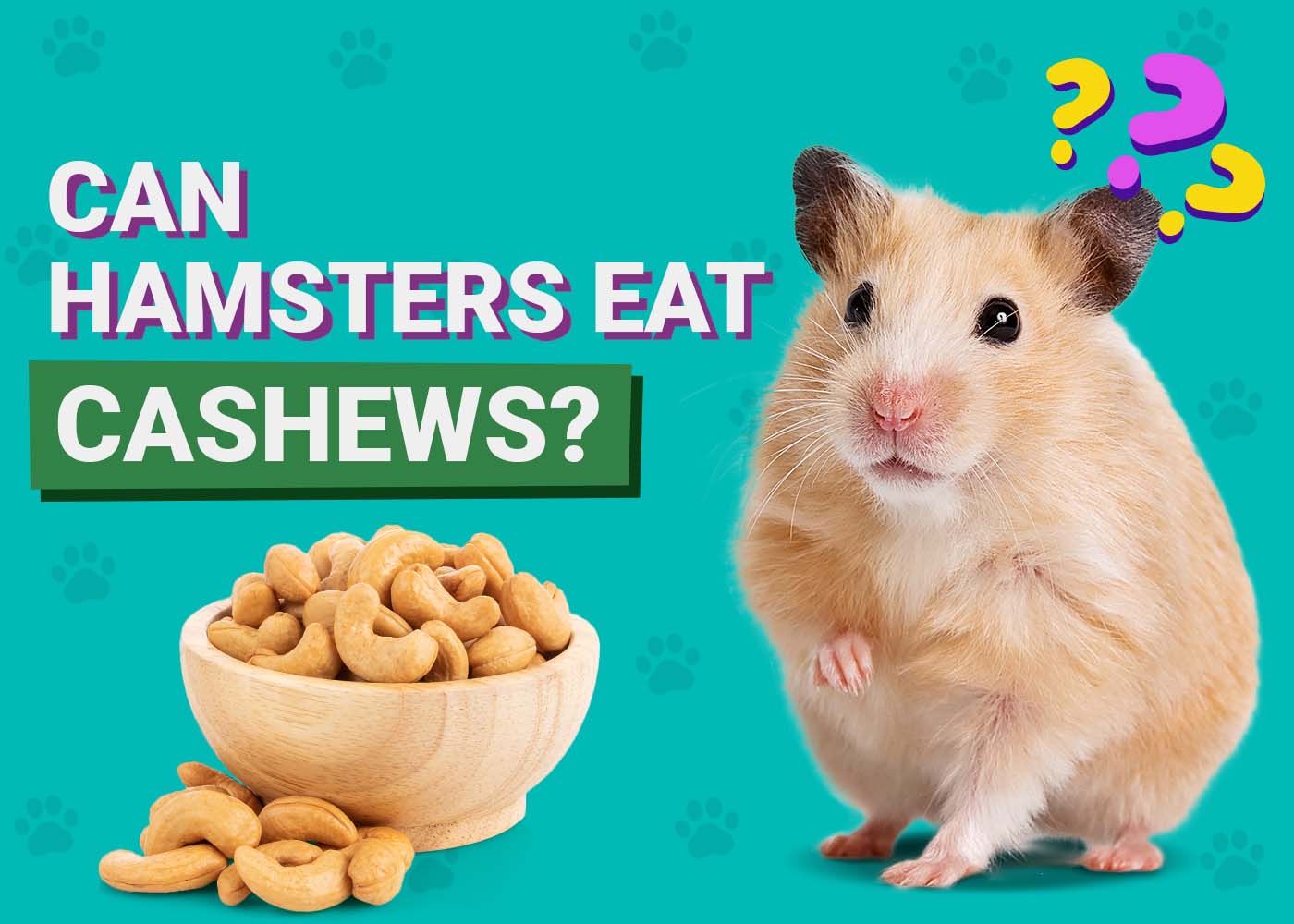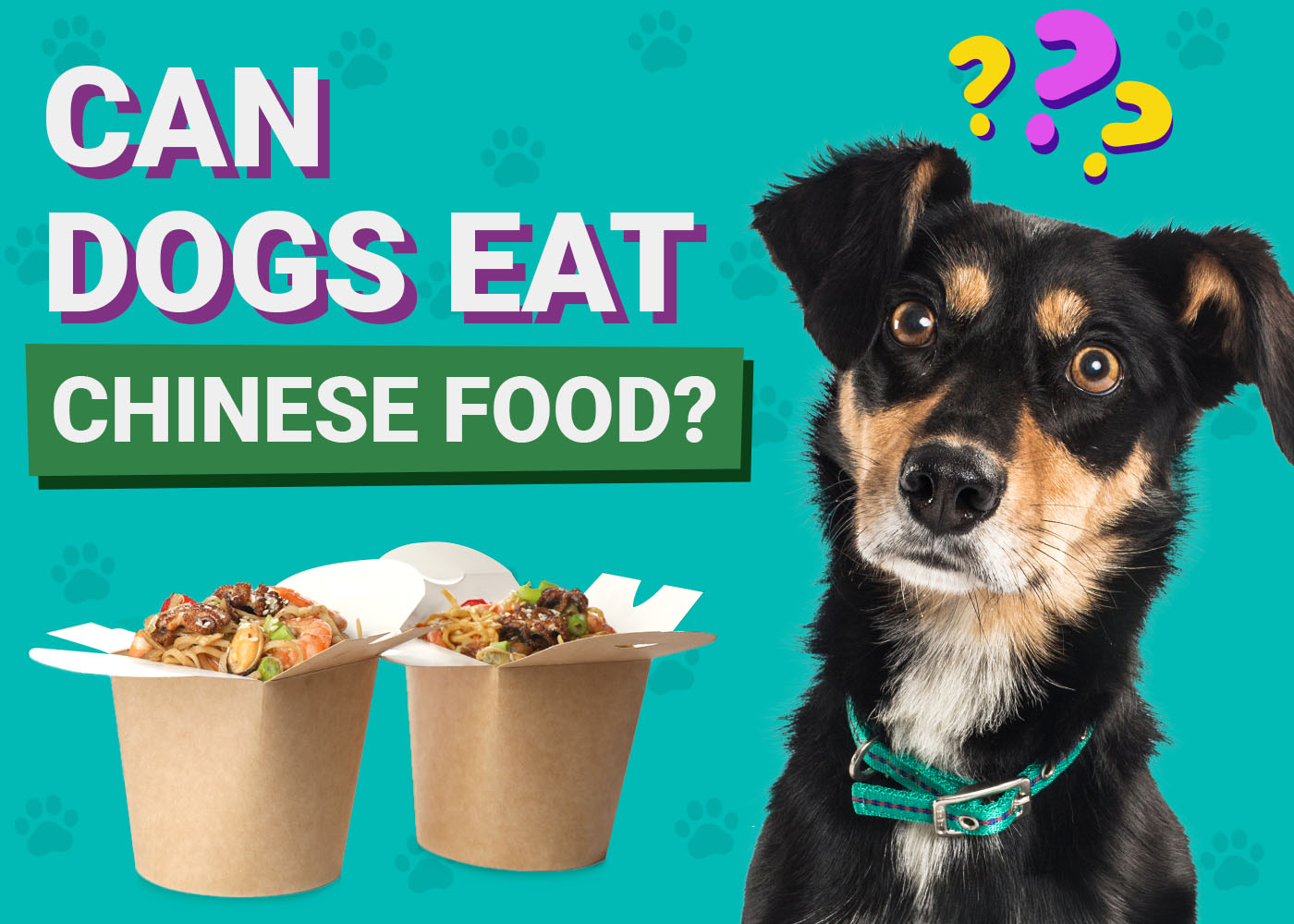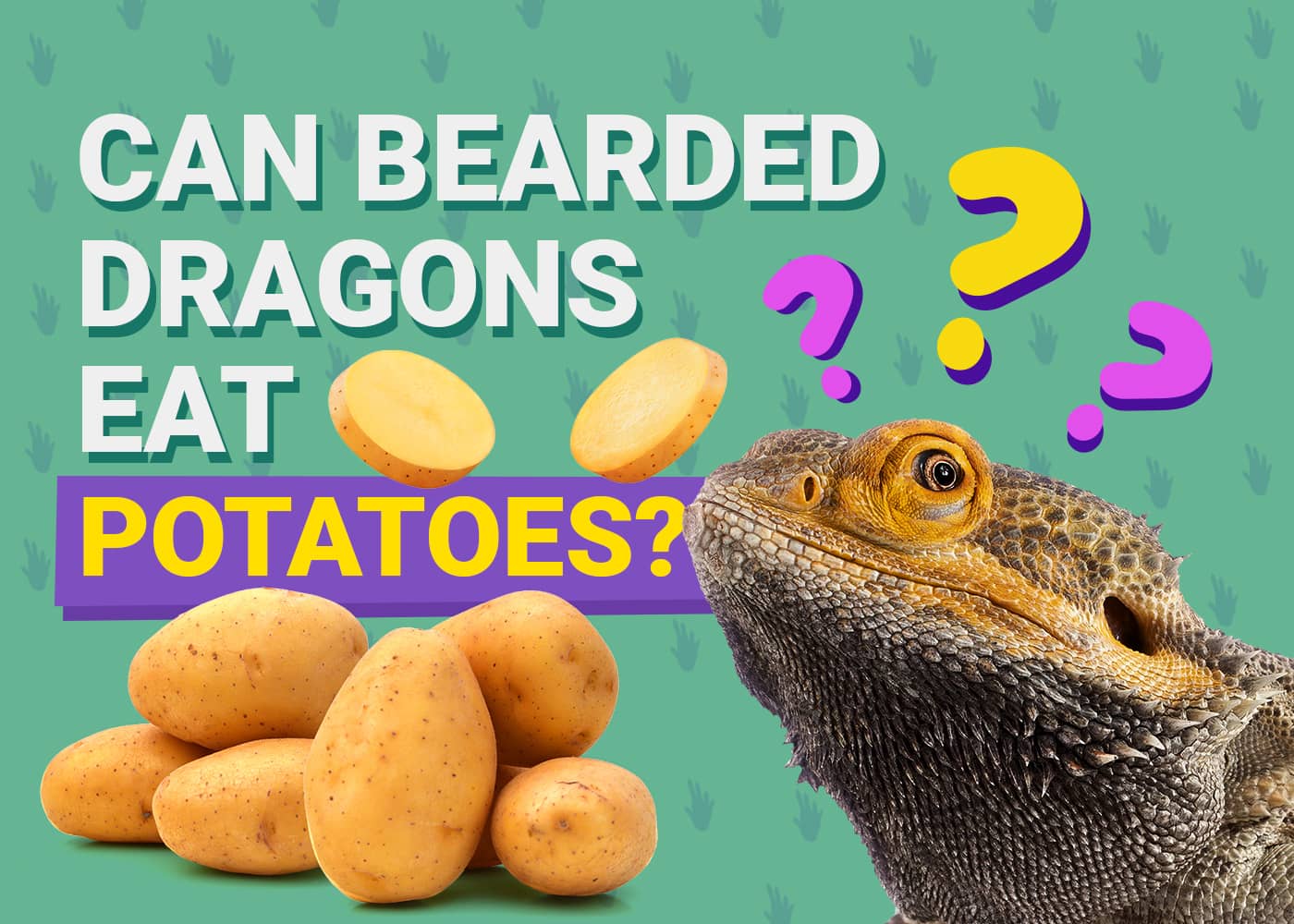VET APPROVED

The information is current and up-to-date in accordance with the latest veterinarian research.
Learn more »Click to Skip Ahead
Since peanut butter is so effective for mouse traps, it’s no wonder that owners are prone to giving peanut butter to their pet mice. However, there’s a big difference between a pet mouse and a pest mouse.
While peanut butter is an effective bait for traps, it’s not something that you want to feed to your pet mouse. Though pure peanut butter is not toxic for mice, it has other factors that diminish its appeal as a treat or nutritional item for your pet mouse (or mice). Read on as we explain why.

Why Your Mice Shouldn’t Eat Peanut Butter
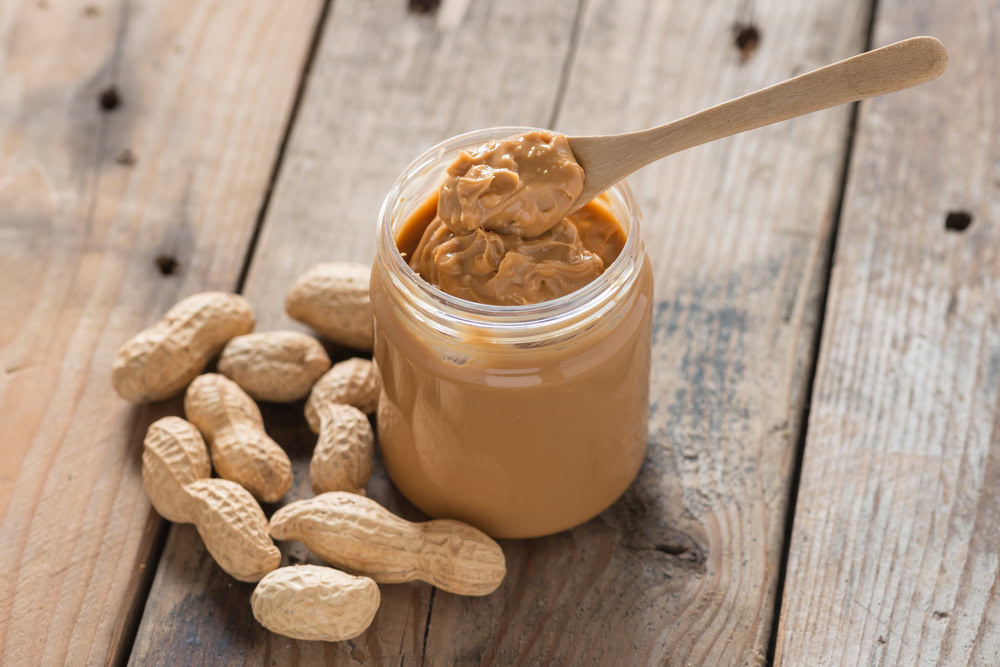
While peanut butter is a great way to attract mice to traps and they certainly love the treat, pet mice shouldn’t be offered peanut butter. Though pure peanut butter (made of just peanuts) isn’t toxic to them, there are several reasons why you’d want to steer clear of serving it to your mouse.
- Calories: Peanut butter is extremely calorie-dense, which makes it very unhealthy for pet mice.
- Sticky: Peanut butter is sticky and may stick to your pet’s feet, fur, and bedding. This can be very difficult to remove. Keep in mind that bathing a mouse (or any pet rodent) with water is generally not recommended and is something only a veterinarian does (at their discretion).
- Dental incompatibility: Mice require foods in their diet that promote chewing, as this keeps their incisors trimmed and well-maintained. Peanut butter doesn’t allow this.
- Dangerous if not pure: Peanut butter that isn’t pure may contain ingredients or emulsifiers that might be toxic for pet mice.
Even if you properly portion control peanut butter for your mouse (a nearly impossible task), it’s still worth mentioning that mice fed a high-fat diet do not fare well in the long run. In fact, they’ve been used in research for this purpose to highlight the drawbacks of such a dietary lifestyle and the implications it might have for us.
Better Treats for Your Mice
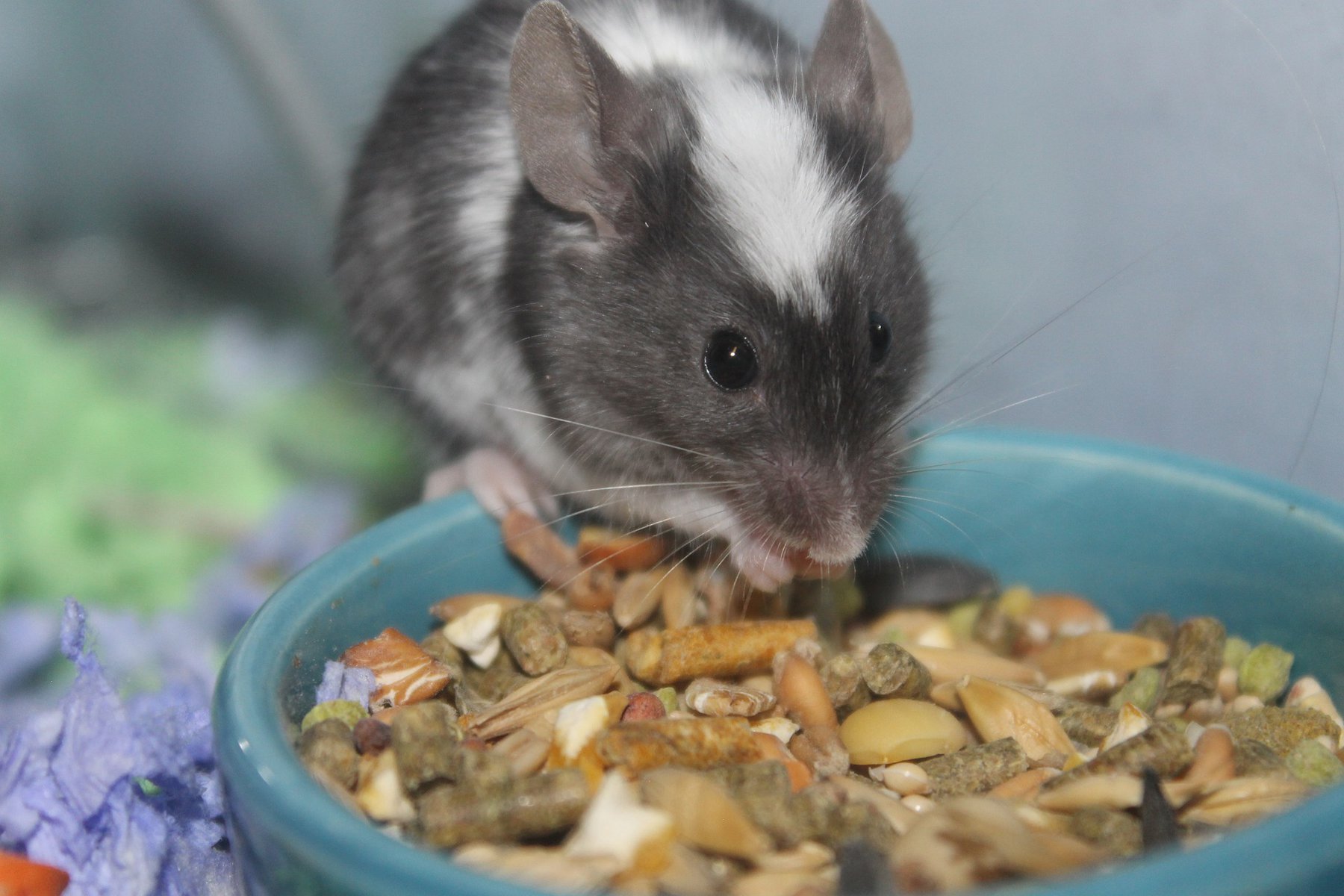
While your mouse might love peanut butter, there are plenty of other treats that you can give them.
- Apples
- Bananas (yellow only)
- Broccoli
- Carrots
These fruits and vegetables might not seem like treats to you, but to your mouse, they’re likely incredibly delicious. They are also healthy when given in moderation.

Mice and Cheese
While there’s this idea out there that mice love cheese, the truth is that, like peanut butter, cheese is very high in calories and rich in fats. Over time, this can lead to an obese pet.
Mice aren’t particularly fond of cheese, despite its popularity as a treat for mice in popular culture (such as cartoons).
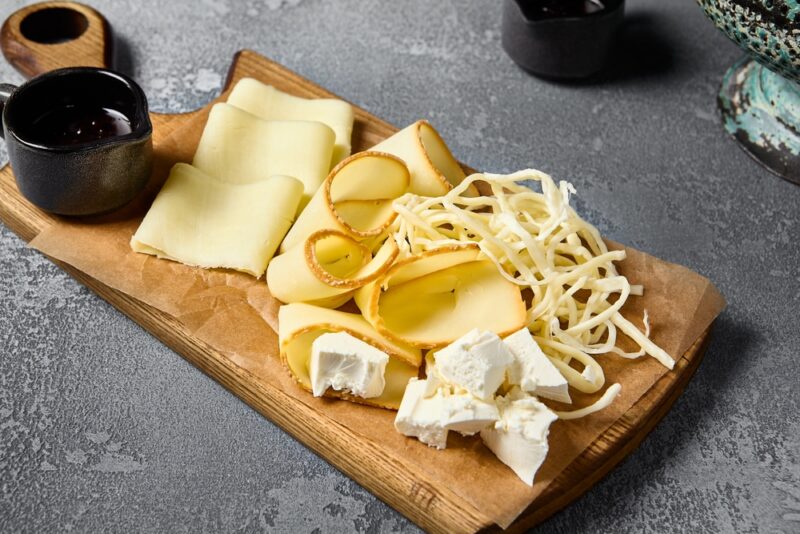
The Ideal Mouse Diet
A pet mouse’s diet is typically comprised of the following:
- A pellet made for pet mice should form the base of their diet. Pellets intended for laboratory mice should not be offered to pet mice, as these options are often high in fat.
- Seed or grain mix. A seed or grain mix should be offered to your mice in small amounts, comprising around 10%-15% of their total food.
- Vegetables and fruits. Vegetables and fruits should comprise roughly the same amount as a seed or grain mix. They provide enrichment alongside other nutritional benefits to help complement their pellet diet. Healthy options include carrots, green leafy vegetables, and the aforementioned apples (though you should not offer your pet the seeds if possible).
- Dental chews. Mice should have access to dental chews at all times. They don’t need to be the items they eat, but many food items (such as hay) can also function as chews.

The 6 Other Foods That Your Mice Should Avoid
You might think that since a mouse is a rodent, you can feed them just about anything, but that’s not the case. If you want your mouse to live a long, happy life, there are a few foods that you need to avoid.
1. Lettuce
While lettuce won’t kill your pet mouse, it will cause diarrhea. It’s not the end of the world, but it’s going to make cleaning their cage much more difficult. More importantly, diarrhea in rodents can quickly snowball into other serious issues. A mouse with diarrhea should be promptly seen by a veterinarian.
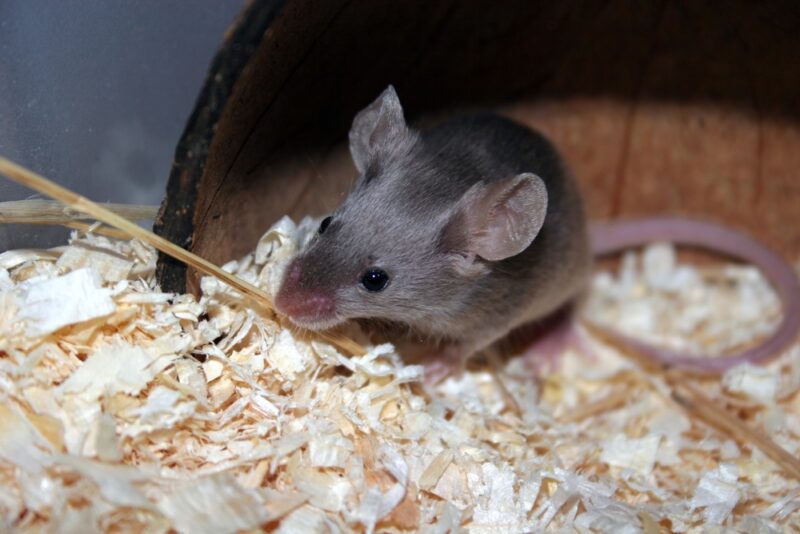
2. Grapes/Raisins
Grapes or raisins are toxic for mice. Therefore, you should not offer them to your pet.
3. Rhubarb
Rhubarb is another fruit that your mouse can’t eat if you want to keep them alive. Rhubarb is extremely toxic for mice, and even small amounts can lead to big problems.
4. Walnuts
Walnuts are also toxic to mice.
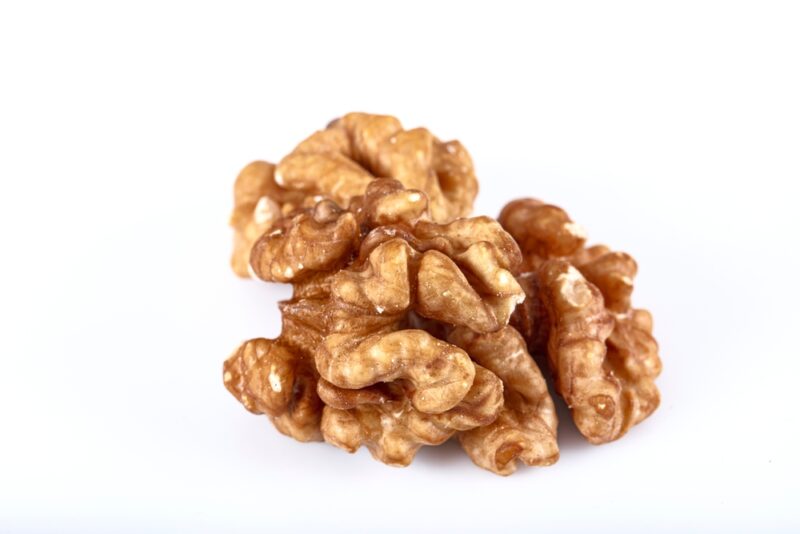
5. Bacon
Foods that are high in fat are terrible for your mice and will create health problems for them down the road. Bacon, though usually non-toxic, is not recommended for pet mice as it’s very high in fats and also often contains preservatives.
6. Candy/Chocolate
Finally, candies and chocolate are not recommended for pet mice because they are not nutritionally appropriate for them.
Fortunately, there are plenty of other options to give to your pet mouse, and some of the safer treats for your pet might already be in your pantry! Consider leaving peanut butter for yourself and offering your pet mice something like carrots or broccoli instead.

Final Thoughts
Just because you have a pet mouse, that doesn’t mean they can eat whatever you put in front of them. While technically mice can eat peanut butter, and they may even love it, it’s not a safe treat for them.
Fortunately, there are plenty of other options out there to give to your pet mouse, and they aren’t overly particular about what you feed them. Use this to your advantage, and feed them foods that will keep them happy and healthy for as long as possible.
Related Read:
- Can Mice Eat Cheese? Vet-Reviewed Nutritional Facts & Info
- Can Rats Eat Cat Food? Vet-Reviewed Health & Nutrition Facts
Featured Image Credit: PublicdomainPictures, Pixabay
